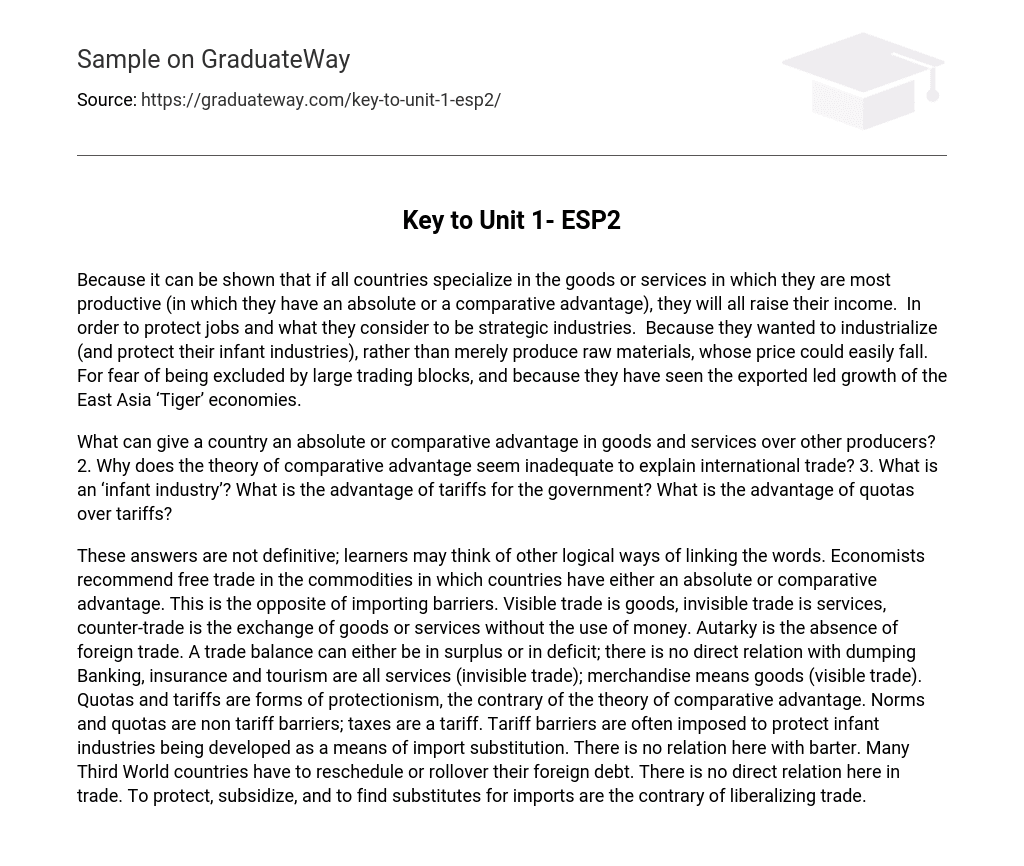Because it can be shown that if all countries specialize in the goods or services in which they are most productive (in which they have an absolute or a comparative advantage), they will all raise their income. In order to protect jobs and what they consider to be strategic industries. Because they wanted to industrialize (and protect their infant industries), rather than merely produce raw materials, whose price could easily fall. For fear of being excluded by large trading blocks, and because they have seen the exported led growth of the East Asia ‘Tiger’ economies.
What can give a country an absolute or comparative advantage in goods and services over other producers? 2. Why does the theory of comparative advantage seem inadequate to explain international trade? 3. What is an ‘infant industry’? What is the advantage of tariffs for the government? What is the advantage of quotas over tariffs?
These answers are not definitive; learners may think of other logical ways of linking the words. Economists recommend free trade in the commodities in which countries have either an absolute or comparative advantage. This is the opposite of importing barriers. Visible trade is goods, invisible trade is services, counter-trade is the exchange of goods or services without the use of money. Autarky is the absence of foreign trade. A trade balance can either be in surplus or in deficit; there is no direct relation with dumping Banking, insurance and tourism are all services (invisible trade); merchandise means goods (visible trade). Quotas and tariffs are forms of protectionism, the contrary of the theory of comparative advantage. Norms and quotas are non tariff barriers; taxes are a tariff. Tariff barriers are often imposed to protect infant industries being developed as a means of import substitution. There is no relation here with barter. Many Third World countries have to reschedule or rollover their foreign debt. There is no direct relation here in trade. To protect, subsidize, and to find substitutes for imports are the contrary of liberalizing trade.





